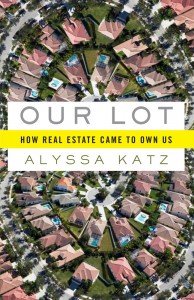 One of the things that BEA is known for is buzzing titles. That is, there are a few books that get immense press and word-of-mouth marketing throughout the convention, and this year, 18-year-old Kody Keplinger’s The DUFF was one of those titles. It was one I was very interested in snagging a copy of, and . . . I was quite impressed.
One of the things that BEA is known for is buzzing titles. That is, there are a few books that get immense press and word-of-mouth marketing throughout the convention, and this year, 18-year-old Kody Keplinger’s The DUFF was one of those titles. It was one I was very interested in snagging a copy of, and . . . I was quite impressed.
Bianca and her friends Casey and Jessica have been hanging out at a local under-21 club for a long time, but on one particular winter day, Wesley, a male classmate, calls Bianca the Duff. Never having heard the word before, Bianca gets an explanation: she’s the designated ugly fat friend, and more than that, she’s the reason her friends fall for guys like him — if the cute guy is nice to the ugly girl, well, how could the cute girls not fall for him? He’s clearly sensitive, right?
Bianca’s hurt, and she takes this word on herself. But rather than letting it eat away at her, Bianca pushes against it. She doesn’t believe her best friends would simply keep her around because she’s a Duff. Sure, she doesn’t always feel as pretty or thin as they are, but she can snag a guy for herself, can’t she? But a tough relationship from the past may just come back to haunt her into believing that she is, indeed, little more than the Duff.
Oh, but did I mention that Bianca may just begin using Wesley, the certified jerk, as her own personal pawn? Or maybe, just maybe, they will be falling madly in like with one another, despite their inhibitions and Bianca’s interest in the sweet and sensitive Toby?
The DUFF was a fast-moving, engaging, and at times hilarious story about fitting in and not fitting in. There were moments that made me laugh and some that made me sad, but there was no stopping the pace. Keplinger wrote some sexy scenes, as well, that were straight out of a Simone Elkeles novel.
The dialog and situations within the novel were realistic and unbelieavbly true to an authentic 17-year-old experience. Because Keplinger’s age is brought up over and over again in other reviews, I can’t leave it out: I think her being 17 at the time of writing this is not only a heck of an accomplishment but a true asset in delineating such realistic dialog and characters. None of the characters here felt flat, though at times I felt the adults were nothing but figures to move the plot (but isn’t that the case in many ya novels anyway?). Likewise, I think the message in this book that everyone feels like the Duff is an important one, and it is one I think will stick with readers for a long time.
If I had to plot Keplinger’s writing on a map, I would call it the perfect melding of Elizabeth Scott and Simone Elkeles. We have a real teen situation with a gripping girl as a lead character (a la Scott’s romances) and some sexy situations written in a way that makes the reader blush at times (a la Elkeles). Pass this book off without hesitation to fans of either writer, as well as fans of Lauren Oliver. It might be a little more issue-driven than most of Sarah Dessen’s work, but I still think there’s an obvious audience there. This is definitely a title that will resonate with teen girls (and even adults!) but will probably have little appeal for boys. A couple of other important issues raised in the book include alcoholism and divorce, so this may be a good pick for readers interested in either of those.
Keep your eyes on Kody Keplinger. She has earned the buzz status with this title, and she has a heck of a long and exciting career in the field ahead of her. The DUFF won’t hit stores until September, but keep your eyes peeled for what will certainly be tons of opportunities to snag advanced copies of this little gem.
(I want to step back here a second, too, and say that though I was never initially a fan of the cover, I think it works now. I think including a fat girl on the final cover for this title would be belittling to the cover and to the greater message presented in the book. I stand corrected).







